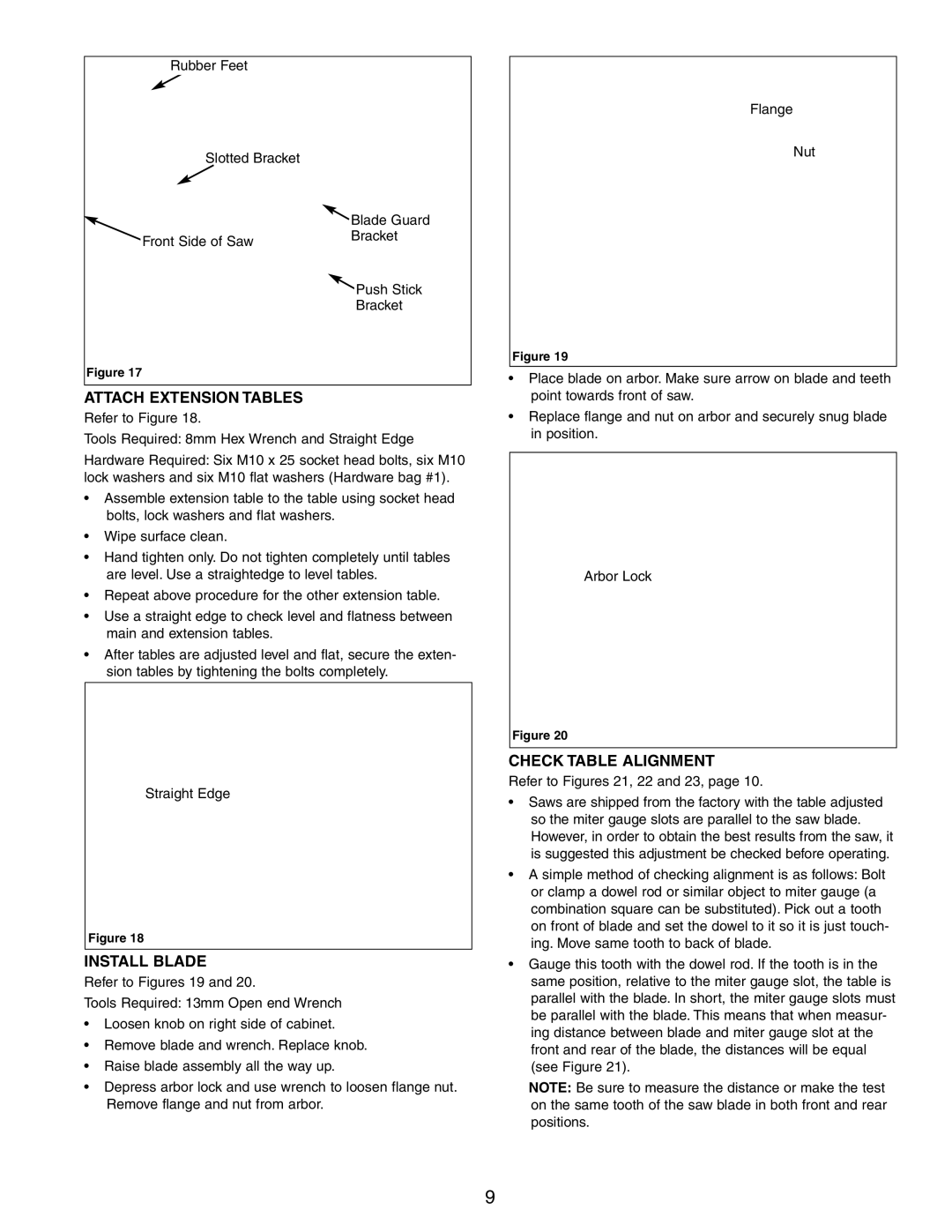
Rubber Feet
Slotted Bracket |
|
|
| |
|
|
|
|
|
|
| Blade Guard | ||
|
| Bracket | ||
Front Side of Saw |
| |||
|
|
|
| |
|
|
|
|
|
|
|
| Push Stick | |
|
|
| Bracket |
|
Figure 17
ATTACH EXTENSION TABLES
Refer to Figure 18.
Tools Required: 8mm Hex Wrench and Straight Edge
Hardware Required: Six M10 x 25 socket head bolts, six M10 lock washers and six M10 flat washers (Hardware bag #1).
¥Assemble extension table to the table using socket head bolts, lock washers and flat washers.
¥Wipe surface clean.
¥Hand tighten only. Do not tighten completely until tables are level. Use a straightedge to level tables.
¥Repeat above procedure for the other extension table.
¥Use a straight edge to check level and flatness between main and extension tables.
¥After tables are adjusted level and flat, secure the exten- sion tables by tightening the bolts completely.
Straight Edge
Figure 18
INSTALL BLADE
Refer to Figures 19 and 20.
Tools Required: 13mm Open end Wrench
¥Loosen knob on right side of cabinet.
¥Remove blade and wrench. Replace knob.
¥Raise blade assembly all the way up.
¥Depress arbor lock and use wrench to loosen flange nut. Remove flange and nut from arbor.
Flange
Nut
Figure 19
¥Place blade on arbor. Make sure arrow on blade and teeth point towards front of saw.
¥Replace flange and nut on arbor and securely snug blade in position.
Arbor Lock
Figure 20
CHECK TABLE ALIGNMENT
Refer to Figures 21, 22 and 23, page 10.
¥Saws are shipped from the factory with the table adjusted so the miter gauge slots are parallel to the saw blade. However, in order to obtain the best results from the saw, it is suggested this adjustment be checked before operating.
¥A simple method of checking alignment is as follows: Bolt or clamp a dowel rod or similar object to miter gauge (a combination square can be substituted). Pick out a tooth on front of blade and set the dowel to it so it is just touch- ing. Move same tooth to back of blade.
¥Gauge this tooth with the dowel rod. If the tooth is in the same position, relative to the miter gauge slot, the table is parallel with the blade. In short, the miter gauge slots must be parallel with the blade. This means that when measur- ing distance between blade and miter gauge slot at the front and rear of the blade, the distances will be equal (see Figure 21).
NOTE: Be sure to measure the distance or make the test on the same tooth of the saw blade in both front and rear positions.
9
